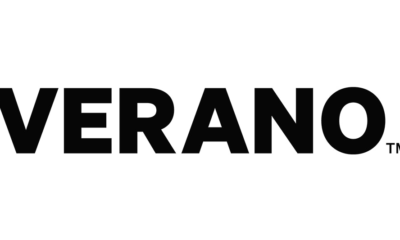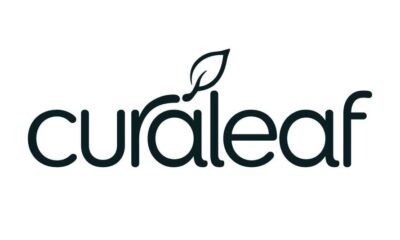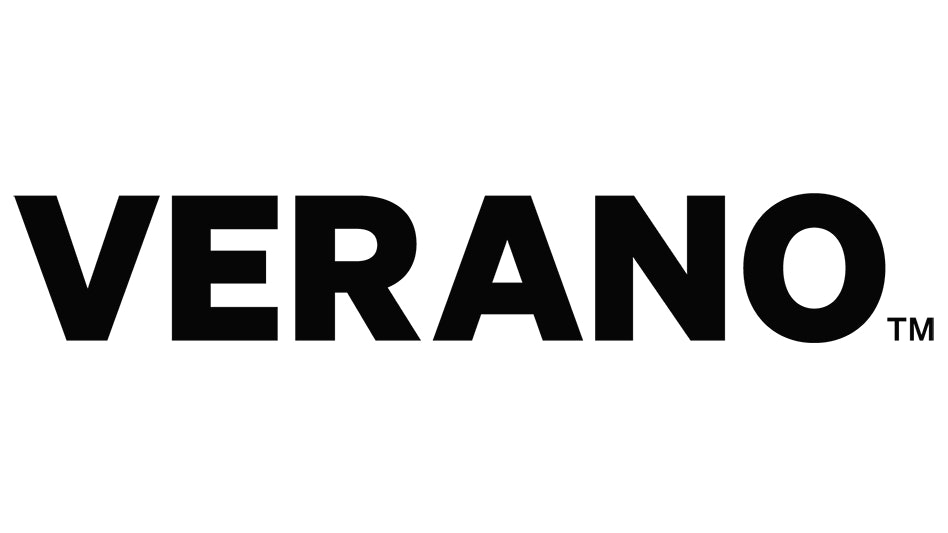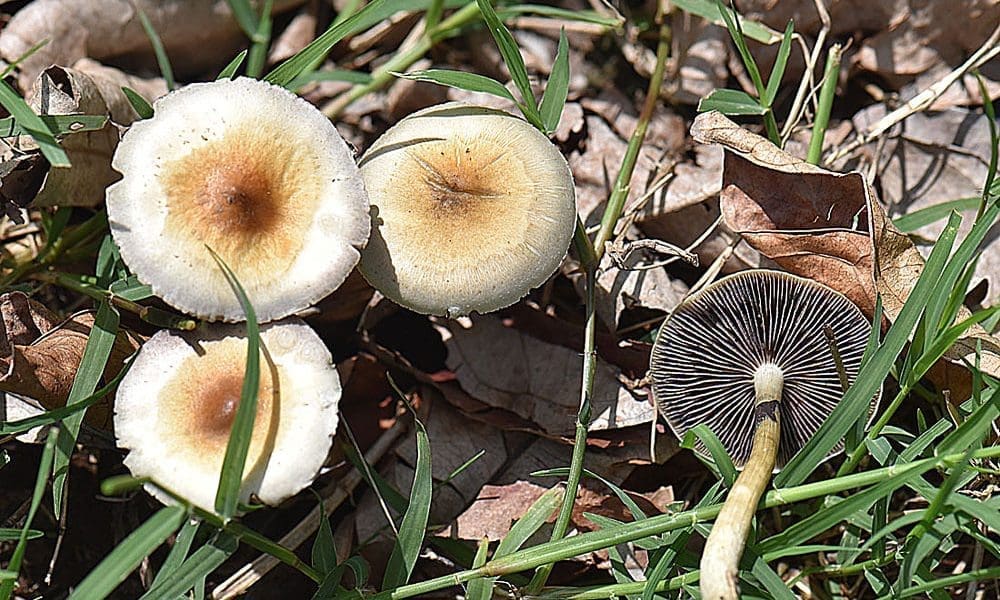featured
Adventures in Berkeley’s Psychedelic Wunderground
Published
2 weeks agoon

I tiptoed through a creaky hallway overlaid with vinyl, careful as if not to wake sleeping parents. Sock-footed in solidarity, the sixty or so people inside The Berkeley Alembic filled a humble conference room already buzzing. Five minutes late, I slid into a chair just as the contact high hit—was I being possessed?
It was clear from the start of the “jam-sesh,” an installment of the monthly psychedelic salon called The Chalice, that the flight from the corn-sweat-tinged dairylands of Wisconsin was going to be worth it.


The Wunderground
This visit to the San Francisco Bay was the most recent in a four-year string of trips to the birthplace of America’s psychedelic culture. I came searching for the shards and remains of the 1980s-1990s “Psychedelic Underground,” which is the subject of an evolving mythosphere surrounding its origins and function in the current popularization of mind-manifesting compounds taking over America’s collective conscience.
“This isn’t just about psychedelics, but is an exploration of what it means to be psychedelic people,” explained cohost Erik Davis, author of High Weirdness, during the introduction. The goal of the discussion wasn’t to worship psychedelic use or gratify the panelists’ egos as a platform for personal trip reporting; it was more like a think tank working out the state of The Wunderground (Weird-Underground)
All post-World War II era generations were in the crowd in pretty near-accurately distributed per capita ratios. On the homemade stage, the four-person panel was tilted in Gen X’s favor. Which makes sense; Xers’ earliest members are approaching the elder stage of life, which means nearly all of America’s smallest recent generation is evenly spread across its most productive years, approaching what will be its peak socio-cultural power.
The terroir of the happening felt to me like a Gen X-led Wunderground flag raised. With aim to, in the words of Davis, “ballast the ships, to make sure they don’t tip all the way over.” The discussion began with a look into the guest of honor and author of Weed: Everything You Want To Know But Are Always Too Stoned To Ask, Michelle Lhooq’s career, and a 375-foot view of the current state of the psychedelic and rave cultures.
Though cohost Dr. Christian Greer tried to convince me he was an “Elder Millennial,” I believe he and Davis represented the right and left hemispheres of the Xer-society-level cerebral cortex, respectively, in the discussion. Maria Mangini represented the feminine heart of the Boomers, and Lhooq seemed to be animated as Generation iAmPhone’s root chakra. The gaggle transitioned from the macro to the microcosm, sharing personal stories that flowed through a range of topics, including grief, entity-possession, trauma release, GHB, California Sober, raves, sex, intelligence, and, most notably, the “vibes draught.”
It was fascinating to hear the questions and focus of each generation. Boomers and Gen Z seemed most keyed into the vibes-draught in the rave scene and its implications, where Xers and Millennials saw surviving Boomer institutions like Dead and Friends not as cultural stagnation, but as keeping the vibes pilot light lit.
San Dorado, The Weirdo City
Like the legend of El Dorado, San Francisco was the literal City of Gold that drew a strange cast of hardworking characters across the “American Frontier” to California right before the Civil War. At this very boundary of America’s continental expansion, the SF Bay is clearly the geographic location of the cultural wellspring for the current American era. As a young Millennial man, coming of age as a witness to the fiery chaos-traphe bringing this New Deal era to its end, I’m fascinated by the enrapturing totality of San Dorado’s influence since America dropped Fat Man and Little Boy over the Pacific.
The mushroom cloud must have floated over the City of Gold as the next morning’s ocean mist. Hovering like a radioactive UFO ever since, causing weird karmic cultural mutatis for the last 80 years. From Hippies and Black Panthers to the revenge of the Silicon Valley nerds, much of America’s culture, and now economic activity and speculation, is based on a San Franny Bay template. In what feels like the climax of a successful alchemical ritual, California has pushed its dream deeply into the collective imagination of high-cholesterol society, most totally now with the iPhone and every Internet-led cultural outflow that has followed since 2007.
This is the “weird” frontier, the land of the hippy-feaks turned Silicon Valley Oligarchic Landlords, and it continues to draw me in. The term “weird” was front and center in this conversation; cohost Davis has even published a detailed scholarship of the term. In an interview he conducted in 1998 with Terence McKenna, which is often referred to as McKenna’s last recorded interview, the psychedelic philosopher left us with the words, “I think it’s just going to get weirder and weirder and weirder and finally, it’s going to be so weird, that people are going to have to talk about how weird it is.”
That’s what was delivered, an intellectually poignant, heart-centered “jam-sesh” on the state of The Wunderground in what Chalice cohost Mangini added are “spooky” times.
Rave New World
We’re clearly entering a new era, and what makes this discussion so topical is that psychedelic communities and underground rave music communities still offer what’s on the cutting edge of cultural lifestyle and intellectual development. As Looqh told me in a follow-up interview, “I think that electronic music has become the soundtrack for this contemporary moment.” Whether this contemporary moment marks the end of a 50-to 100-year societal cycle, the ~2,100-year shift to the Age of Aquarius, or both, something is inviting us through the gates of history.
At large, on the political front, America seems to be working out how to talk about how weird things are getting, but beyond this, issues like technological development, psychedelics and the drug war, and state of our culture, how they interact with our social, individual, and economic wellbeing, and what to do about them, seem to be lost in the Boomer-dominated sauce in mainstream America, but not here in Berkeley.
The gathering felt to me like some much-needed cultural development in the “psychedelic community,” standing in contrast to the sometimes staunch sterility of the mainstreaming momentum of the psychedelic sciences. As Mangini put it when talking about the psychedelic medical model, “The medicalization of psychedelics was a devil’s bargain… The idea that you have to have a diagnosis to use these things is completely nuts in human history.”
Overall, the quadralogue was a riffedelic ribosome, folding complete proteins of psychedelic insight. From the perspective of a Midwest, light-blue-collar tourist of San Francisco Weird, it was pretty cool seeing people talk about the difficult collective issues facing their community and society-at-large as open-minded adults in the presence of a massively multigenerational audience.
Where I come from, when it comes to dialogue, the generational divide between those under the age of 40 and the Baby Boomers almost seems as large as the 1960s generational gap seemed for them and their G.I. Generation elders. The Wunderground is showing signs of heady life, beckoning as a cultural holdout to inspire the next era’s crop of freaks and beats, wherever they may roam.
To close the night, Lhooq pulled a turn-table judo move, using her last word to ask the hosts to give the audience a message of hope. “I don’t know about hope,” it was said, but I now know about the importance of secrecy. Then, I checked my watch. Ninety-nine seconds early, the session concluded with a cymbal crash of group chanting, “Peace. Love. Unity. Respect.”
This article is from an external, unpaid contributor. It does not represent High Times’ reporting and has not been edited for content or accuracy.
Cover image by Rudra K via Unsplash

Author: mscannabiz.com
MScannaBIZ for all you Mississippi Cannabis News and Information.
You may like
-


Pending Federal Hemp Legislation Could Reshape The Legal Industry By Banning Some Products (Op-Ed)
-


Verano Proposes to Redomicile Parent Company From British Columbia to Nevada
-


8,000 cannabis plants seized from illegal Bradford grow-op
-


New York Lawmakers Schedule Psychedelics-Focused Hearing To Discuss ‘Medicinal Value And Risks’ Of Psilocybin
-


Curaleaf Opens Cannabis Dispensaries in Florida, Ohio
-


How to Protect Your Outdoor Cannabis Crops From Pests
featured
Pending Federal Hemp Legislation Could Reshape The Legal Industry By Banning Some Products (Op-Ed)
Published
38 minutes agoon
September 15, 2025
“The outcome of the debates around these provisions will determine the future of hemp-derived products in the United States, and the economic viability of the industry.”
By Lauren Estevez and Joanne Caceres, Dentons US Cannabis Group
As Congress returns from recess this month, the hemp industry is closely monitoring provisions that could fundamentally reshape the entire sector.
The 2018 Farm Bill removed hemp and its derivatives containing less than 0.3 percent delta-9-THC from the Controlled Substances Act. A so-called “unintended consequence” was that it became possible to produce hemp products that complied with the limit but had sufficient amounts of THC to produce an intoxicating effect.
Sales of such products, including hemp beverages and edibles, have increased significantly, encouraged by consumer demand for alternatives to alcohol. Hemp beverage sales alone are expected to more than double over the next four years, to reach $4.4 billion by 2029. All of this could change under provisions contained in pending appropriations legislation.
Sens. Mitch McConnell (R-KY) and Rand Paul (R-KY) have been dueling over various provisions that could dramatically change the hemp market, with McConnell vowing to “close the Farm Bill loophole” responsible for the intoxicating hemp market. In contrast, Paul is looking to “reach a compromise” on key provisions that would further regulate the hemp industry rather than upend it.
As current appropriations legislation makes its way through the legislative process in the House and the Senate, these are the key provisions that state regulators, consumers and the hemp industry should be watching. There is also pending federal legislation that would regulate hemp products apart from the Farm Bill.
“Total” THC Concentration Calculation Effectively Prohibits Certain Intoxicating Products
One of the provisions that appeared in House and Senate versions of agriculture appropriations legislation—before being removed from the Senate version—would add other THC molecules to the calculation for the 0.3 percent delta-9-THC limit.
The 2018 Farm Bill defined legal hemp as “the plant Cannabis sativa L. and any part of that plant…with a delta-9 tetrahydrocannabinol concentration of not more than 0.3 percent on a dry weight basis.” In contrast, the current bills account for “total tetrahydrocannabinol concentration (including tetrahydrocannabinolic acid) of 0.3 percent in the plant on a dry weight basis.”
This provision would bar certain products from the market which have low delta-9-THC but have high concentrations of other intoxicating THCs (such as THC-A, Delta-8 THC, THC-O, etc.). This would outlaw many hemp products currently on the market, especially hemp flower products and vape products with high THC-A, and cause disruption to many business owners, especially smoke shops and gas stations, where such products thrive.
If enacted, it would require manufacturers to reformulate certain products and invest in new testing procedures to ensure compliance with the narrower definition for legal products.
Excluding Synthetic Cannabinoids And Conversion Will Lower Supply and Increase Input Costs
The agriculture spending legislation also excludes synthetic cannabinoids from the definition of legal hemp products. These provisions exclude cannabinoids that are not naturally produced in the cannabis plant, and those which are naturally occurring but which are produced “outside of the plant.”
While synthetic THCs are currently illegal under the Controlled Substances Act, there is legal uncertainty around naturally occurring THCs which are created through chemical processes from the naturally extracted hemp cannabinoids (frequently, naturally occurring CBD is converted to delta-9-THC and other intoxicating cannabinoids).
A prohibition against converting CBD to THC would significantly impact the cost to make these ingredients for intoxicating hemp products. Manufacturers that currently rely on these converted cannabinoids would need to discontinue certain product lines altogether or produce them with naturally occurring cannabinoids at tighter margins.
Ban On “Quantifiable” THC Or Intoxicating Cannabinoids Would Push Intoxicating Hemp Products Back To Illicit Market And Inadvertently Harm The Non-Intoxicating Cannabinoid Wellness Market
The most controversial provision would limits the “legal limit” of THC concentration in hemp products from 0.3 percent to “no quantifiable” amount of THC, with quantifiable amount to be defined by the Department of Health and Human Services (HHS) in consultation with the U.S. Department of Agriculture (USDA).
The provision would create tremendous disruption for the hemp industry, state regulators and customers. As currently drafted, the definition of “no quantifiable amount” is ambiguous as to whether it means 0 percent or some other threshold. Certificates of analysis usually denote no “detectable amount” when testing is below a certain limit.
The definition of “quantifiable” is unknown. This rule could ensnare full spectrum and CBD products, which are neither intended nor designed to be intoxicating. The change would also conflict with the many state laws that allow for 0.3 percent and or have quantifiable limits like 2.5mg, 5 mg, or 10mg of THC per serving or package for legal hemp products.
Standalone Hemp Regulation Bills Like Griffith’s Proposed Approach
While additional regulation of hemp products is sorely needed, a regulatory approach focused on health and safety will ultimately be more effective than a prohibition bill.
Draft legislation from Rep. Morgan Griffith (R-VA) circulated in late August would allow for hemp product sales to adults aged 21 and over, and would require HHS to determine THC thresholds within 60 days of passage of the bill.
The legislation would require labels to contain a QR code linking to a certificate of analysis showing which cannabinoids the product contains and in what quantities, prevent hemp producers from adding alcohol and nicotine to their products and require tamper-proof packaging that does not appeal to youth.
In the event that HHS fails to establish THC thresholds within the required timeframe, the bill would automatically implement the following limits:
- Oral hemp products with non-intoxicating cannabinoids: Up to 10mg/serving and 50mg/package.
- Inhalable products: Up to 100mg/serving and 500mg/package.
- Topical products: Up to 100mg/serving and 500mg/package.
- Intoxicating cannabinoid products (e.g. items containing THC): Up to 0.2mg/serving and 1mg/package.
The restrictions in Griffith’s bill mirror many state regulations that are already in place, and the automatic THC thresholds that would be implemented allow for a larger variety of products than the restrictions in the appropriations bills. However, the proposed limits to intoxicating cannabinoid products suggested would effectively eliminate the legal hemp intoxicating product market.
Conclusion
The pending appropriations bills and other hemp legislation could dramatically reshape the hemp industry, with proposed provisions that could significantly tighten the regulatory landscape.
If Congress redefines THC limits to include all cannabinoids, excluding converted and synthetic cannabinoids, or potentially imposes a “no quantifiable” THC threshold, lawmakers are signaling a shift toward significant product restrictions for hemp producers.
These changes would not only disrupt current business models and product lines but also create substantial compliance challenges for manufacturers and state regulators.
The ambiguity surrounding key terms like “quantifiable” further complicates the path forward, raising questions about enforcement and conflicts with existing state laws.
All hemp products, whether intoxicating or not, would be impacted by these provisions if passed as drafted. Such stark changes to the law would likely push such products to the illicit market, making them less safe.
Instead, an approach similar to states like Minnesota, which allows low intoxicating dosages of up to 10mg, or less THC for beverages, as determined at the state level, would be a more suitable alternative for Congress to consider.
Now that Congress is returning from recess, the outcome of the debates around these provisions will determine the future of hemp-derived products in the United States, and the economic viability of the industry. Ultimately, any of this federal legislation would be a critical turning point for the industry, either fostering continued growth and regulatory clarity, or introducing new hurdles that could reshape the market for years to come.
Lauren Estevez is a Senior Managing Associate in the Dentons US Cannabis Group. Joanne Caceres is a Partner in the Dentons US Cannabis Group.

Author: mscannabiz.com
MScannaBIZ for all you Mississippi Cannabis News and Information.
featured
Verano Proposes to Redomicile Parent Company From British Columbia to Nevada
Published
2 hours agoon
September 15, 2025
[PRESS RELEASE] – CHICAGO, Sept. 15, 2025 – Verano Holdings Corp., a leading multistate cannabis company, announced that the company’s board of directors approved, and the company will be seeking shareholder approval of, a proposed plan to redomicile Verano Holdings Corp. from British Columbia, Canada, to the state of Nevada.
Verano believes that redomiciling in the United States better aligns with its U.S.-based business and operations and streamlines its organizational and regulatory structure within the United States, among other reasons discussed in the preliminary proxy statement filed by the company on Sept. 12, 2025, with the U.S. Securities and Exchange Commission and in Canada on SEDAR+ (the “preliminary proxy statement”).
“Since inception and our 2021 go-public transaction, we’ve focused on ways to unlock shareholder value and create potential catalysts for the business, including enhancements to our corporate structure and executing a capital markets strategy that positions Verano to capitalize on near and long-term growth opportunities,” Verano Chairman and CEO George Archos said. “From our 2023 strategic decision to list company shares on Cboe Canada, a senior U.S.-based exchange with global operations, to our redomiciling in the U.S. as a newly-registered Nevada enterprise, we are prepared to leverage opportunities that benefit the company and our shareholders.”
The company’s plan to redomicile Verano Holdings Corp. in the United States is not expected to materially impact its existing manufacturing and retail business, which spans 13 U.S. states, including the location of its corporate headquarters in Chicago.
Pursuant to the company’s proposed plan of arrangement, Verano will continue from the jurisdiction of British Columbia, Canada, to the jurisdiction of the state of Nevada (the “continuance”). Upon completion of the continuance, the issued and outstanding subordinate voting shares of the British Columbia-formed Verano Holdings Corp. will automatically be exchanged on a one-for-one basis for shares of common stock of the continued Verano Holdings Corp. domiciled in Nevada (“Nevada common stock”). Each of the company’s outstanding stock options and restricted stock units will be deemed to be adjusted pursuant to the terms of the company’s stock and equity incentive plan to become a stock option and a restricted stock unit to receive an equal number of shares of Nevada common stock, respectively.
The preliminary proxy statement was filed in connection with a proposed special meeting of the company’s shareholders to consider and, if thought advisable, approve a plan of arrangement implementing the continuance. The company’s board of directors may, at any time, including after receiving shareholder approval, in its discretion, decide not to proceed with the arrangement and not complete the continuance.
Upon completion of the continuance, the Nevada common stock will trade on the Cboe Canada exchange under the company’s existing ticker symbol, “VRNO,” and be quoted on the OTCQX under the symbol “VRNOF.”
For more information on Verano Holdings Corp., visit the company’s investor website: https://investors.verano.com/.

Author: mscannabiz.com
MScannaBIZ for all you Mississippi Cannabis News and Information.
featured
New York Lawmakers Schedule Psychedelics-Focused Hearing To Discuss ‘Medicinal Value And Risks’ Of Psilocybin
Published
3 hours agoon
September 15, 2025
New York lawmakers have scheduled a hearing to discuss the medical potential of psilocybin as the state considers pursuing a pathway for regulated access to the main psychedelic component of “magic mushrooms.”
In a notice published by the Assembly Health Committee on Wednesday, Chairwoman Amy Paulin (D) noted that, while psilocybin is currently listed as a Schedule I drug, the federal Food and Drug Administration (FDA) has designated it as a “breakthrough therapy” for major depression—indicating that “the therapy may offer improved results for such conditions over currently approved treatments.”
A meeting to go over the science and potential regulations of the novel therapy is scheduled for September 30. Oral testimony is by invite only from the committee, and witnesses have not yet been announced.
“Various localities have enacted measures regarding psilocybin, including the states of Colorado, Oregon, and New Mexico which allow for its supervised use, citing its potential as a treatment for some mental health conditions,” the notice says. “However, more information is needed to better understand the medicinal value that psilocybin may have as a therapy in New York State.”
“To this end, the Committee seeks to hear from researchers, medical experts, and other stakeholders on the potential medicinal value and risks of psilocybin,” Paulin said.
The chairwoman introduced a bill to legalize psilocybin for adults last year, provided they obtain a permit after undergoing a health screening and educational course.
New York legislators have taken special interest in psychedelics reform in recent sessions.
—
Marijuana Moment is tracking hundreds of cannabis, psychedelics and drug policy bills in state legislatures and Congress this year. Patreon supporters pledging at least $25/month get access to our interactive maps, charts and hearing calendar so they don’t miss any developments.![]()
Learn more about our marijuana bill tracker and become a supporter on Patreon to get access.
—
For example, in January, Assemblymember Linda Rosenthal (D) filed legislation calling for the legalization of certain entheogenic substances such as psilocybin and ibogaine for adults 21 and older.
The bill would amend state statute to make legal the “possession, use, cultivation, production, creation, analysis, gifting, exchange, or sharing by or between natural persons of twenty-one years of age or older of a natural plant or fungus-based hallucinogen.”
DMT, ibogaine, mescaline, psilocybin and psilocyn would fall under the definition of “natural plant or fungus-based hallucinogens” that would be legalized by the bill.
Rosenthal’s measure was introduced just days after another New York lawmaker, Sen. Nathalia Fernandez (D), prefiled a measure that would legalize psilocybin therapy for patients with qualifying conditions.
Under that proposal, people could receive psilocybin treatment from a certified facilitator in a clinical setting, or at their home if they’re unable to travel. Patients and facilitators would receive protections against state-level prosecution.
Fernandez also filed an earlier version of the bill last session, but it did not move out of committee either. Only minor technical changes have been made in the latest iteration.
Bicameral New York lawmakers said at a briefing last year that there was a “real chance” that legislation to legalize psilocybin-assisted therapy would advance through committee, emphasizing that delaying action would “neglect” many “people who need help” with certain mental health conditions. That did not ultimately materialize, however.
“We’re in a mental health crisis, and so we need every tool that’s available to us,” Assemblymember Pat Burke (D), who sponsored another bill to create a psilocybin therapy pilot program for 10,000 people, said. He added that “we’re here to turn the page” on the broader drug war.
Photo courtesy of Dick Culbert.

Author: mscannabiz.com
MScannaBIZ for all you Mississippi Cannabis News and Information.

Pending Federal Hemp Legislation Could Reshape The Legal Industry By Banning Some Products (Op-Ed)

Verano Proposes to Redomicile Parent Company From British Columbia to Nevada

8,000 cannabis plants seized from illegal Bradford grow-op

New York Lawmakers Schedule Psychedelics-Focused Hearing To Discuss ‘Medicinal Value And Risks’ Of Psilocybin

Curaleaf Opens Cannabis Dispensaries in Florida, Ohio

How to Protect Your Outdoor Cannabis Crops From Pests

Feds provide anti-cannabis group a platform to bash legalization (Newsletter: September 15, 2025)

Dozen arrested after south Mississippi bust for illegal sales to underage customers

The Toking Traveler: Why Amsterdam Weed Is Mostly Boof

Arkansas Medical Marijuana Sales Are On Track To Set A New Annual Record

When Cannabis Brands Blur Into Youth Culture, Regulators Notice: Lessons From Tobacco’s Past

Rhode Island Marijuana Dispensary License Application Process Officially Launches

Middle school student found with cannabis in bookbag, Charles County deputies say

Smugglers who brought drugs on an industrial scale into Wales jailed

Attorney pulls out bag of cannabis in NC Supreme Court hearing

WHO AM I? Man wanted for New Bern cannabis store theft

Cannabis packages under scrutiny

California authorities shut down nearly $30 million worth of illegal cannabis operations

A Green Light for Cannabis? Europe Waits While the U.S. Untangles the Red Tape

Move Over, Booze: Weed Drinks Pulled $1.1 Billion in U.S. Sales in 2024

Congressional Committee Votes To Repeal Marijuana Expungements Law In Washington, D.C.

Times Square Welcomed Its Brightest Cannabis Billboard Yet

Smoking Marijuana With A Water Bong Doesn’t Effectively Filter Compounds From Smoke, Study Suggests

A Beginner’s Guide for Watering Cannabis Plants

Alert: Department of Cannabis Control updates data dashboards with full data for 2023

Connecticut Appoints The US’s First Cannabis Ombudsperson – Yes there is a pun in there and I’m Sure Erin Kirk Is Going To Hear It More Than Once!

5 best CBD creams of 2024 by Leafly

EU initiative begins bid to open access to psychedelic therapies
New Study Analyzes the Effects of THCV, CBD on Weight Loss

Free delta-9 gummies from Bay Smokes

Discover New York’s dankest cannabis brands [September 2024]

5 best autoflower seed banks of 2024 by Leafly

Press Release: CANNRA Calls for Farm Bill to Clarify Existing State Authority to Regulate Hemp Products

Curaleaf Start Process Of Getting Their Claws Into The UK’s National Health System – With Former MP (Resigned Today 30/5/24) As The Front Man

May 2024 Leafly HighLight: Pink Runtz strain

Local medical cannabis dispensary reacts to MSDH pulling Rapid Analytics License – WLBT

Recreational cannabis on ballot for third time in South Dakota

5 best THC drinks of 2024 by Leafly

Horn Lake denies cannabis dispensary request to allow sale of drug paraphernalia and Sunday sales | News

Mississippi city official pleads guilty to selling fake CBD products

6 best CBD gummies of 2024 by Leafly

Nevada CCB to Accept Applications for Cannabis Establishments in White Pine County – “Only one cultivation and one production license will be awarded in White Pine County”

The Daily Hit: October 2, 2024

5 best delta-9 THC gummies of 2024 by Leafly

Weekly Update: Monday, May 13, 2024 including, New Guide for Renewals & May Board meeting application deadline

PRESS RELEASE : Justice Department Submits Proposed Regulation to Reschedule Marijuana

5 best THCA flower of 2024 by Leafly

People In This State Googled ‘Medical Marijuana’ The Most, Study Shows
Trending
-

 California Cannabis Updates1 year ago
California Cannabis Updates1 year agoAlert: Department of Cannabis Control updates data dashboards with full data for 2023
-

 Breaking News1 year ago
Breaking News1 year agoConnecticut Appoints The US’s First Cannabis Ombudsperson – Yes there is a pun in there and I’m Sure Erin Kirk Is Going To Hear It More Than Once!
-

 best list1 year ago
best list1 year ago5 best CBD creams of 2024 by Leafly
-

 Business12 months ago
Business12 months agoEU initiative begins bid to open access to psychedelic therapies
-

 cbd1 year ago
cbd1 year agoNew Study Analyzes the Effects of THCV, CBD on Weight Loss
-

 Bay Smokes1 year ago
Bay Smokes1 year agoFree delta-9 gummies from Bay Smokes
-

 cannabis brands12 months ago
cannabis brands12 months agoDiscover New York’s dankest cannabis brands [September 2024]
-

 autoflower seeds12 months ago
autoflower seeds12 months ago5 best autoflower seed banks of 2024 by Leafly




